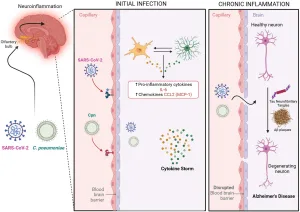Trained Immunity: A Double-Edged Sword?
The human immune system is incredibly complex. Scientists are constantly exploring new ways to enhance our natural defenses against disease. One promising area of research is “trained immunity,” a process that aims to boost the immune system’s ability to respond to threats. However, recent findings suggest that trained immunity might not always be beneficial and could even be counterproductive in some situations.
Understanding Trained Immunity
Trained immunity differs from traditional immunological memory. Traditional memory involves the adaptive immune system, which learns to recognize specific pathogens and mounts a targeted response upon re-exposure. Trained immunity, on the other hand, primarily involves the innate immune system, the body’s first line of defense. It can be thought of as a “priming” of the innate immune cells, making them respond more strongly to subsequent stimuli, even if those stimuli are different from the initial trigger.
The Potential Downsides
While boosting the immune system sounds like a universally good thing, researchers are discovering potential drawbacks to trained immunity:
- Exaggerated Inflammatory Responses: In some cases, trained immunity can lead to an overactive immune response. This can result in excessive inflammation, which can damage tissues and contribute to chronic diseases.
- Autoimmunity: There is concern that trained immunity could potentially trigger autoimmune reactions, where the immune system mistakenly attacks the body’s own cells.
- Context-Dependent Effects: The effects of trained immunity seem to vary depending on the specific stimulus, the individual’s genetic background, and other environmental factors. This makes it challenging to predict when trained immunity will be beneficial and when it will be harmful.
Implications for Vaccine and Therapy Development
These findings have important implications for the development of vaccines and therapies that aim to harness the power of trained immunity.
- Careful Consideration: Researchers need to carefully consider the potential risks and benefits of inducing trained immunity in different contexts.
- Personalized Approaches: It may be necessary to develop personalized approaches that take into account individual differences in immune responses.
- Further Research: More research is needed to fully understand the mechanisms underlying trained immunity and to identify strategies for safely and effectively modulating the immune system.
Final Overview
Trained immunity holds great promise for enhancing our immune defenses. However, it’s crucial to acknowledge that it’s not a one-size-fits-all solution. By understanding the potential downsides and conducting further research, we can strive to harness the benefits of trained immunity while minimizing the risks.




+ There are no comments
Add yours